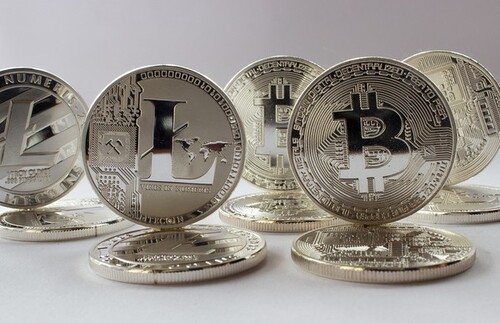
Africa needs crypto, and crypto needs Africa.

That was the key message from the webinar hosted by VALR on April 25.
Moderated by VALR CPO Badi Sudhakaran, the panel featured VALR CEO, Farzam Ehsani, global Web3 expert, Yoseph Ayele and Yele Bademosi, CEO and co-founder of Nestcoin.
“We’re doing our best to usher in a new financial system that will meet the needs of the people, not the needs of a few financial institutions and a few individuals who are benefiting from the current system,” Ehsani told the audience.
VALR’s CEO grew up in Kenya and has witnessed first-hand the challenges facing a continent dealing with a history of oppression and injustice.
In comments that encapsulated the central challenge facing VALR and other organisations that are part of the crypto and blockchain ecosystem across the continent, he added, “The imperative is there, it will happen. It’s a matter of building, and it’s a matter of time.”
Three main themes emerged during the discussion:
“Crypto is not a theoretical concept in Africa,” pointed out Ayele, who is from Ethiopia and grew up in Kenya, Tanzania and Nigeria.
“It’s real, it’s practical, and it’s meeting real needs today.”
In February, Ayele led a trip to Ethiopia, Kenya, Ghana and Zambia with Vitalik Buterin and other Ethereum community members to connect with grassroots community members and builders.
It was on the Zambia leg of the tour that Ayele and Bademosi met Sudhakaran, an encounter that ultimately led to the theme for the webinar.
An entrepreneur who is plugged into Western and Asian as well as African Web3 ecosystems, Ayele believes that there is an existential risk to crypto if it remains a small industry reaching only 10-15% of markets.
Wider adoption is essential: “The crypto world needs Africa to reach its full potential and reach mass adoption for real world use cases.”
The need for crypto is clearly there, but as Sudhakaran noted, there are still significant challenges and obstacles.
This is where Nigerian entrepreneur Yele Bademosi’s experiences were particularly illuminating.
An expert who has operated in the crypto space in Africa for several years, Bademosi contended that some of the major barriers were a lack of understanding – both amongst the public at large, and regulators.
Reflecting on his own history, he added that he took a lot of responsibility for the lack of understanding of crypto.
When he first got into the space, Bademosi had focused on building the ecosystem amongst founders and entrepreneurs, but had not necessarily communicated the use cases for crypto within the existing landscape.
“I do think there is a huge opportunity for us to look at the utility of blockchains and digital assets beyond a single use. How do we segment these use cases based on what that utility is?” This, he argues, would go a long way towards making crypto more obviously relevant.
“The challenge is twofold: 1, we need to make decentralised or self-custodied products as easy and possible and 2, we need utility – we will see a lot of on-chain financial services.”
Picking up on Bademosi’s comments about utility, Sudhakaran kicked off the next phase of the discussion with a question about what this means for Africa as a frontier market.
Echoing Bademosi’s comments about a lack of understanding presenting a barrier to the growth of the blockchain ecosystem, Ayele argued,
“It’s up to the builders and the community in crypto to take on that extra layer of work and educate regulators on the basics of how this technology works and of the basics of the use cases.”
One of the points that came up during this part of the conversation was that utility in an African context is not necessarily the same as utility in, say, China or India.
Ayele recalled that, on the African trip, Vitalik Buterin spoke about how complex a lot of defi (decentralised finance) can be – complexity that isn’t necessarily relevant to these markets.
For Ayele, the priorities for blockchain in Africa should be simple, essential financial tools: the key financial infrastructure that includes borrowing, lending, escrow and insurance.
Africans cannot afford to wait another twenty years to see change, he said.
“We’ve got to figure out a much better win-win situation where governments see the value proposition and local companies see the value proposition, instead of scrambling to take a bigger market share of a small market. I think there’s a huge unlock market that the premise of crypto is offering Africa right now.”
Rounding off the conversation, all three panelists agreed that the outlook for blockchain and crypto in Africa is bright.
Importantly, everyone in the audience had their part to play in educating those around them about the opportunities offered by blockchain and crypto, and dispelling the myths that persist around this new sector.
Ehsani wrapped up by bringing the discussion back to the central point: why was everyone in this space working to build for the future?
“Crypto is not the goal,” he pointed out. “Crypto is a tool.” The actual goal, he added, is to empower the people of Africa.
“My call to everyone who is listening here is to really reflect on your own situation and where you are, whatever work you’re doing, because all of us have a role in shaping the discourse of humanity, shaping the education of those around us, and ourselves.”
“Ultimately, this is a call to action to not sit back, but to act, to talk, and to work together to move the world forward.”
